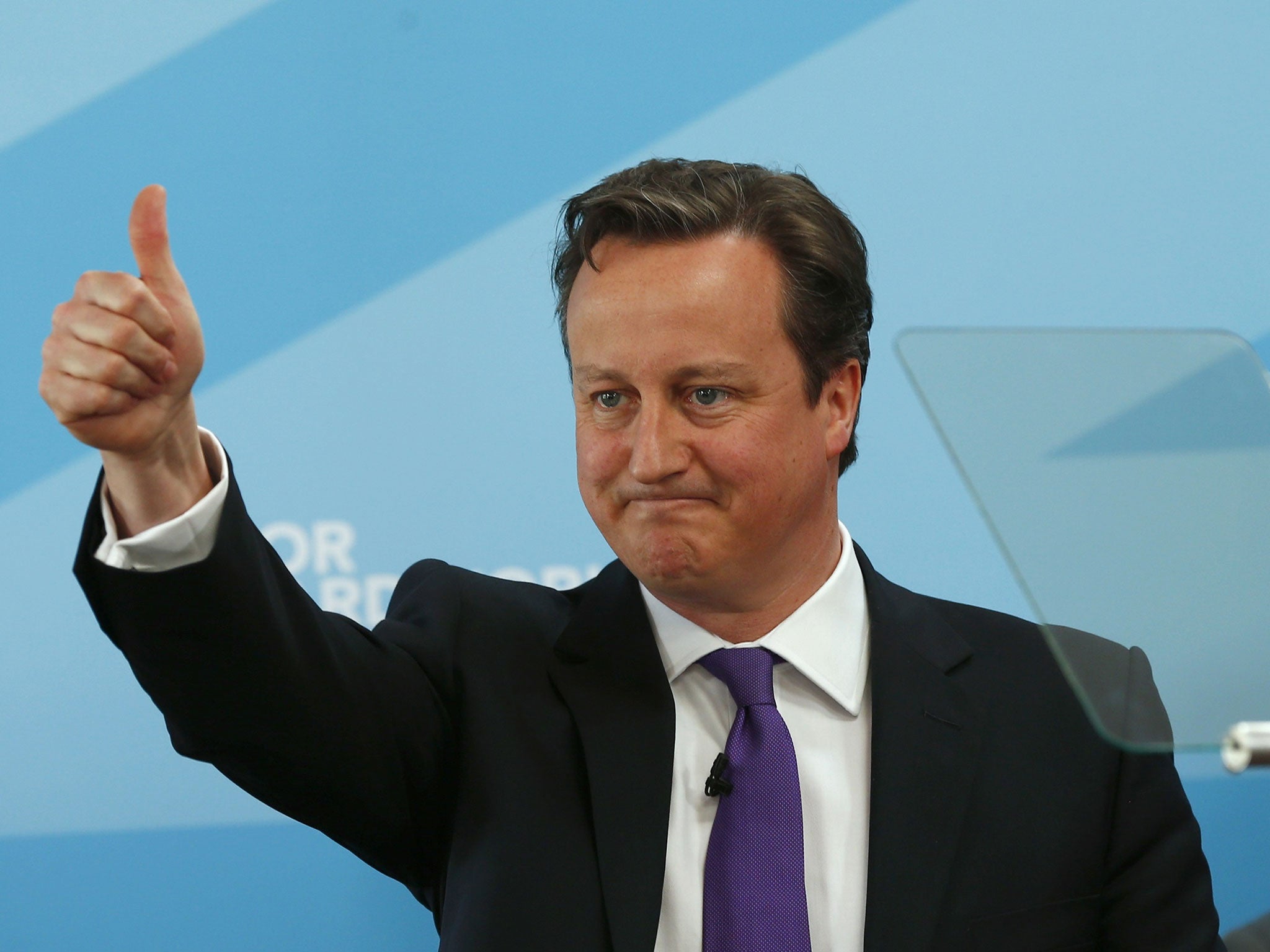Old Tory scepticism has won, yet Europe still ravages the party
Cameron has little room to manoeuvre as he twists towards the next crisis


The Eurosceptics have won. They won long ago. Conservative MPs who rage about Europe should get out a good bottle of French wine and celebrate instead. It is the misty-eyed pro-Europeans who have lost. Indeed they have been slaughtered, their dreams are in tatters. They are almost nowhere to be seen in British public life. And yet it is the ubiquitous Tory Eurosceptics who are miserable and alarmed.
Commentators make the obvious parallels with John Major and his fatally fractious party in the 1990s. There are many echoes. But let us also recall what Major’s rebellious backbenchers were demanding. One Tory MP after another declared back then that they were opposed to Britain entering the single currency and that they wanted to see a European Union enlarged, in order to challenge the dominance of France and Germany.
They got everything they sought. Britain remains outside the euro. The EU is so enlarged that no single country can dominate in the way that was once possible. These were two early, decisive victories for Major’s insurgents. Since then, the rebels have secured incomparably more.
There was a moment of heightened danger for the Eurosceptics, but that moment has emphatically passed. It came with the election of Tony Blair in 1997. As Ed Miliband once observed when a youthful adviser at the Treasury, for the likes of Blair and Peter Mandelson “Europe” had become a cause partly because they had no other. They were no longer left-of-centre social democrats and within that vacuum they hit upon a new historic mission – to reconcile the UK to “Europe”.
In an interview recently, Alastair Campbell suggested that Blair’s biggest regret was failing to take Britain into the euro. So, the anxieties of Eurosceptics then were partially justified. They were right to be on their guard. They might have lost.
However, once again they won. Blair never made his moves in Europe and when it came to the biggest call of his career, over Iraq, he sided Thatcher-like with a Republican President in the US rather than with the big countries in the EU.
Conservative Eurosceptics deserve credit for making entry into the euro impossible, as do Gordon Brown and Ed Balls, who took what was a deeply unfashionable stance on the centre-left in highlighting the dangers of joining monetary union. The sceptics had won again.
After all these oscillations, the UK is by no means in a perfect situation. The EU is obviously imperfect. There are big issues about accountability, efficiency and fundamental questions about what an enlarged EU should be doing and what it should not be doing. Yet if anyone can stand back for a second or two from the current frenzy it is clear that being semi-detached insiders is better than any other option and that, for once, the cliché applies, that if there were no European Union we would need to invent one, or an institution very close to it.
Take the single market, part of the EU that even most Eurosceptics regard as important for the British economy. For a single market to work there needs to be rules. The rules have to be administered by so-called bureaucrats. The rules need to be agreed and constantly reviewed by elected politicians because we, the voters, need to hold them to account for what is happening. Suddenly, we get a complicated multi-tiered model, but without the model there is no single market.
Similarly, when our criminals flee to other parts of Europe do we want the relevant countries to co-operate with us or not? Eurosceptic news- papers scream for co-operation when villains flee to nearby countries, then want to opt out of all the rules that make such co-operation possible.
The current EU is in need of sweeping reform. But, here’s the twist: other key countries agree. David Cameron was pleasantly surprised to discover that Germany had considerable sympathy for some of his objectives as he moved erratically towards making his speech in January about the proposed referendum, the address that was supposed to calm the Tories down.
When the former French President Giscard D’Estaing recently spoke at a debate on Europe organised by The Spectator, he stressed that France wanted reforms too, changes relating to efficiency and accountability. No EU leader wants to be associated with any perceived lack of accountability and inefficiency.
A bonus for Eurosceptics is that while there is an opportunity for reform, there is no chance of any further changes that would involve a transfer of power to Brussels. All three main parties have agreed to referendums before any such reforms are implemented, an historic change and another triumph for Euroscepticism. As no such referendum could be won, no prime minister will dare to agree to a treaty that transfers further powers.
In addition, domestic politics have changed within Britain. Tory Eurosceptics can relax about Labour’s approach to Europe. Miliband and Balls are pragmatists. Labour’s pro-European romantics are no longer in control, as far as they ever were. Even Nick Clegg is seeking reform and supported the paralysing legislation that triggers a referendum on any further transfers of power.
Cameron has been blamed for weak leadership, but mostly what is happening to his party has little to do with him. He is in a weak position and can do no more than muddle through as he twists and turns toward the next crisis. Euroscepticism has triumphed in the UK and yet his party is still impossible to lead because of Europe.

Join our commenting forum
Join thought-provoking conversations, follow other Independent readers and see their replies